PHP Upgradation Plans Features
Upgrading PHP is a crucial step in maintaining website security, performance, and compatibility with newer technologies. So we follow all steps with careful planning to avoid downtime or loss of functionality.
Baby Plan V/s Standard Plan
Each PHP upgradation plan is divided into two plans – Baby Plan & Standard Plan
PHP Upgradation Precautions
Precautions we follow while upgrading PHP with latest version of PHP for all types of websites built in different platform
Take Full Backups
Before starting any upgrade process, we take a full backup of your website, including both files and databases. This backup will act as a safeguard, allowing you to restore the previous version if any issues arise post-upgrade. we ensure backups are stored securely and are easy to restore quickly.
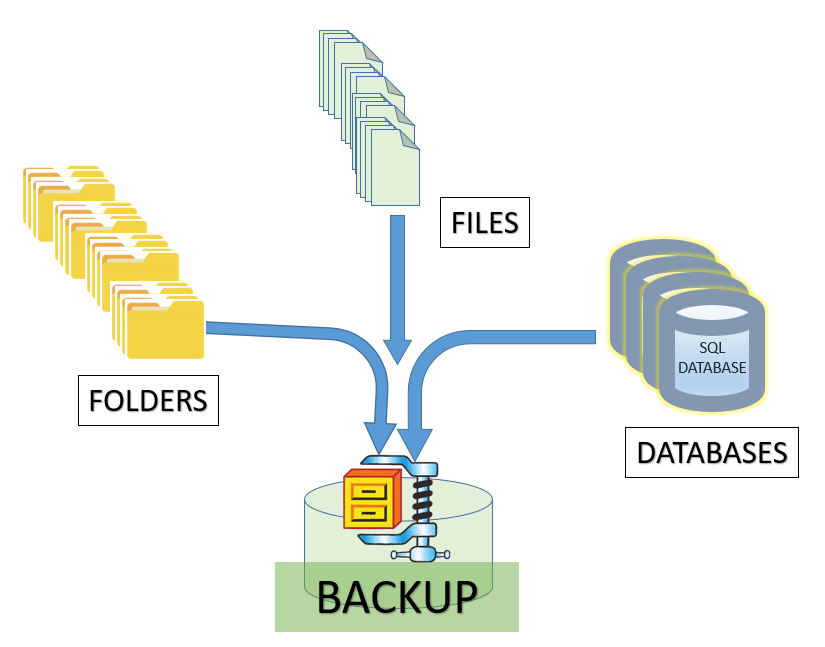
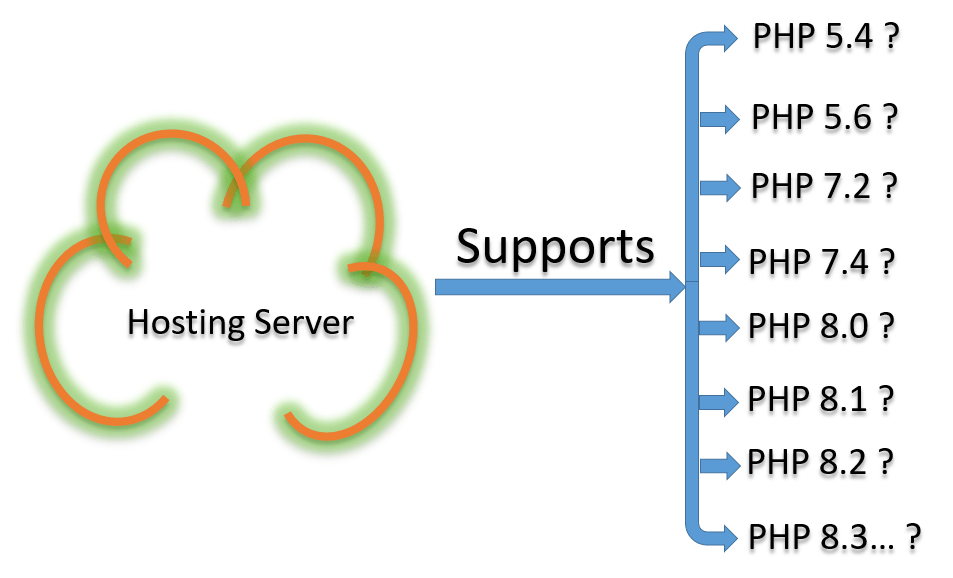
Confirm Hosting Server Compatibility
Before upgrading, we verify that your hosting provider or server environment supports the new PHP version you plan to upgrade to. Some older servers might only support up to a certain PHP version, while newer environments may support the latest versions seamlessly.
Set Up a Testing Environment
To ensure the upgrade doesn’t disrupt your live site, we set up a staging or development environment that mirrors your production setup. Clone your website to this environment and perform the upgrade there first. This isolated testing environment helps us to detect and fix compatibility issues without affecting live users.
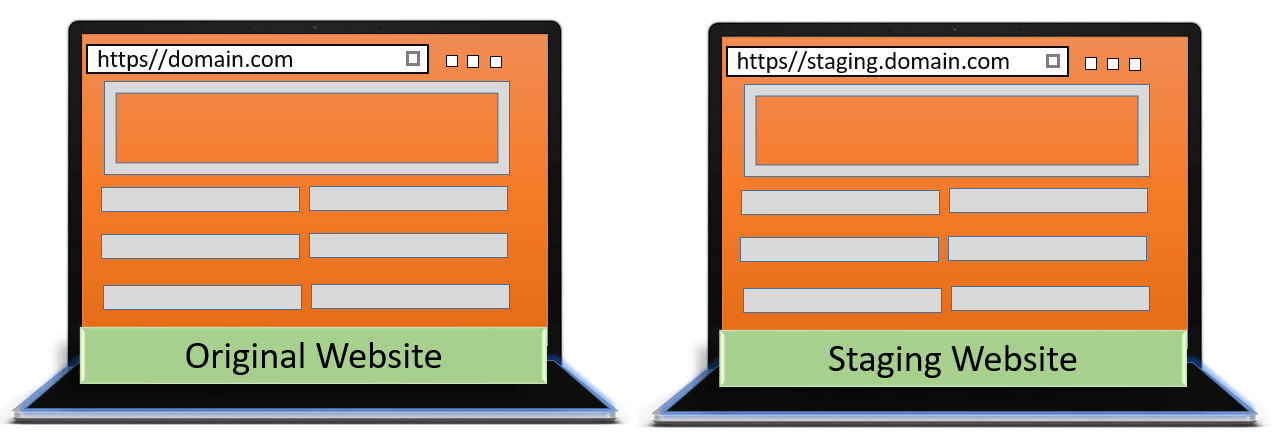
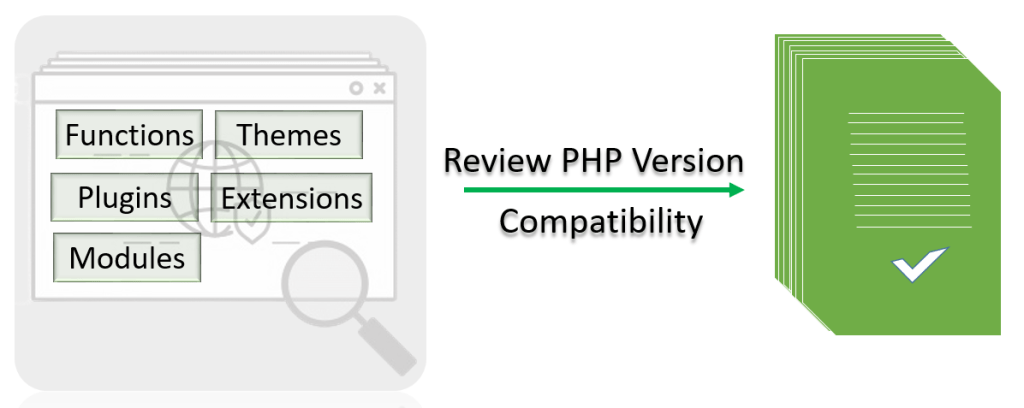
Review PHP Version Compatibility
Check if your website’s code, themes, plugins, and extensions are compatible with the new PHP version. Many themes and plugins are updated periodically to support the latest PHP versions, but older or custom code may not be compatible.
Review Database Compatibility
Some PHP functions interact with databases in ways that may change between versions. We ensure your database management system, such as MySQL or PostgreSQL, is compatible with the new PHP version. Upgrading PHP could also affect database-driven features, so verify that your database queries, structure, and data handling functions work as expected.
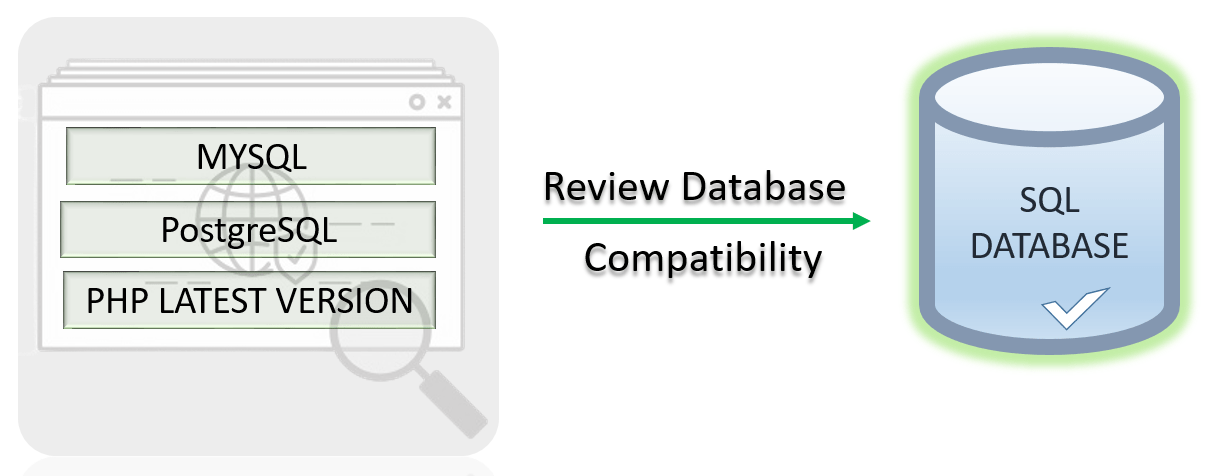
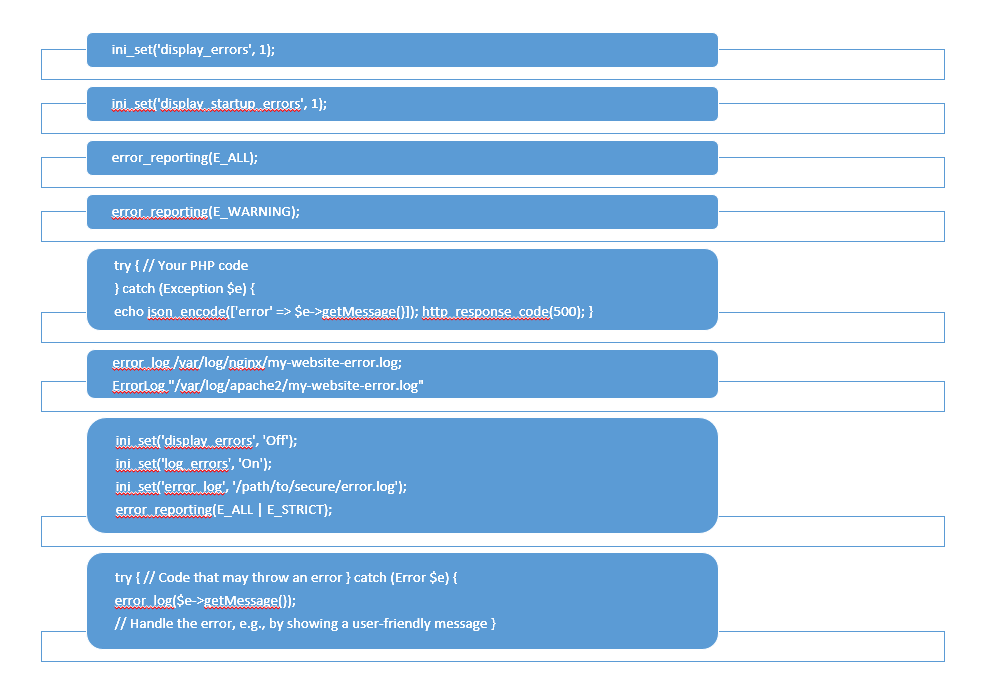
Enable Error Reporting on the Staging Site
During testing, we enable error reporting in your php.ini file or by adding code in your test site’s configuration. This setting will display warnings, errors, and notices, helping you identify any issues in the code that need addressing before pushing the upgrade to the live site.
Optimize PHP Configuration Settings
We review and adjust PHP configuration settings, as newer PHP versions may have different default values. Common configuration settings are memory limit, max execution time, file upload size etc.
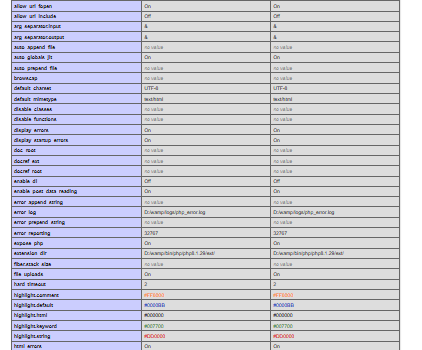

Monitor Performance Post-Upgrade
New PHP versions often bring performance enhancements, but it’s still essential to monitor your website’s performance post-upgrade. If performance degrades, we review your code and server configuration for optimizations.
Rollback Plan
We have a rollback plan in place, allowing us to revert to the previous PHP version if something goes wrong. Our backup are at both side – your live serve and local server on my computer. So we can revert your backup easily with previous version of PHP.
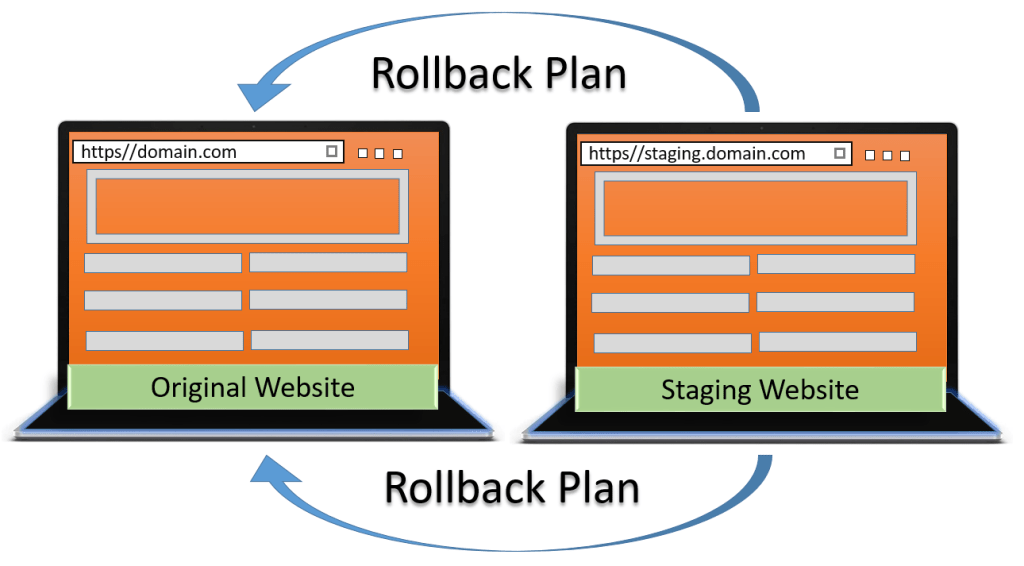
PHP Upgradation Advantages
Upgrading to the latest PHP version offers many advantages for websites and web applications. These benefits span security, performance, and compatibility, ensuring that your website runs smoothly and stays future-proof.
Improved Performance
Upgrading to a newer PHP version can lead to significant performance improvements. Each new release is optimized to process code more efficiently, reducing the server resources required to run applications. PHP 7 and later versions, for example, provide considerable performance boosts compared to PHP 5, with PHP 8 offering even further improvements. This leads to:
- Faster Page Load Times: Reduced page load times enhance user experience and improve SEO, as faster sites tend to rank better on search engines.
- Lower Resource Usage: By processing code faster, newer PHP versions reduce CPU and memory usage, which can be especially beneficial for high-traffic websites.
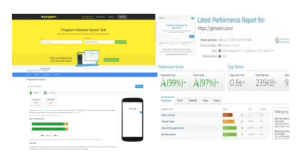
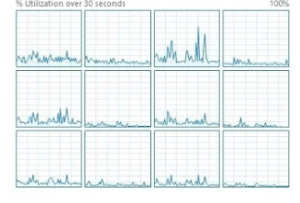

Enhanced Security
Security is a critical factor, especially for web applications handling sensitive data. PHP upgrades include patches for known vulnerabilities and improved security features, which help protect your website from attacks. With an updated PHP version, you gain:
- Protection Against Known Vulnerabilities: Each new version addresses security risks and bugs discovered in older versions, offering built-in protection.
- Better Data Encryption and Validation: Enhanced libraries and functions in newer versions allow for more robust encryption and data validation, reducing the likelihood of security breaches.
New and Improved Features
PHP upgrades introduce new features that can simplify coding, improve readability, and enhance functionality. For instance, PHP 7 introduced the spaceship operator and null coalescing operators, while PHP 8 brought named arguments, JIT (Just-In-Time) compilation, and union types. These features allow developers to:
- Write Cleaner and More Efficient Code: New syntax and operators help streamline complex operations, making code more readable and maintainable.
- Implement Advanced Functionalities: Enhanced features make it easier to implement complex functions, improve code compatibility, and optimize for specific use cases.
Better Error Handling
Starting with PHP 7, error handling improved with the introduction of Throwable interface, making it easier to catch and handle exceptions. This leads to:
- More Manageable Code: Improved error handling reduces the risk of runtime errors causing unexpected issues on live websites.
- Enhanced Debugging: Modern error-handling mechanisms allow developers to debug code more effectively, making it easier to identify and fix bugs.
Enhanced Support and Compatibility
The latest PHP versions provide better support and compatibility with popular libraries, frameworks, and content management systems (CMS) like WordPress, Laravel, and Symfony. By staying updated:
- Improved Integration with Modern Frameworks: Many frameworks require newer PHP versions to leverage their latest features and security patches, so upgrading ensures compatibility.
- Future-Proofing Your Application: Upgrading keeps your project aligned with the latest standards, reducing the risk of outdated code or unsupported features in the future.
Reduction in Deprecated Functions
Older versions of PHP contain deprecated functions that are no longer supported or are gradually being phased out. Continuing to use these functions can lead to vulnerabilities or errors in applications. Upgrading to the latest PHP version removes these deprecated functions, allowing developers to:
- Write More Robust Code: Newer PHP versions provide alternatives to deprecated functions, which are more secure and performant.
- Prevent Compatibility Issues: Deprecation warnings help developers identify outdated code, allowing for timely replacements with newer, more reliable alternatives.
Cost-Effectiveness and Resource Efficiency
Newer PHP versions, especially PHP 7 and PHP 8, offer substantial improvements in resource usage efficiency. These enhancements allow servers to handle more requests with the same hardware, resulting in cost savings. This efficiency benefits websites in several ways:
- Reduced Hosting Costs: Lower resource usage can reduce server load, which may allow you to use less expensive hosting plans.
- Scalability for High-Traffic Sites: Efficient resource usage means that a server can handle more traffic without needing additional resources, making the site more scalable.
Enhanced SEO Benefits
Faster website performance, resulting from PHP upgrades, directly impacts user experience and SEO rankings. Websites that load faster and perform better are more likely to:
- Rank Higher on Search Engines: Google and other search engines prioritize faster websites in their search results.
- Reduce Bounce Rates: Faster load times enhance user experience, lowering bounce rates and keeping visitors engaged with your content.
Support for Modern Coding Practices
PHP upgrades keep pace with modern coding practices, incorporating new paradigms and programming concepts that make code more standardized, readable, and maintainable. Upgrading PHP allows you to:
- Use Object-Oriented Programming (OOP) More Effectively: With PHP’s evolution, OOP concepts have been better integrated, enhancing code modularity.
- Adopt Modern Coding Standards: Newer PHP versions allow developers to use the latest design patterns, which improve maintainability and scalability.



